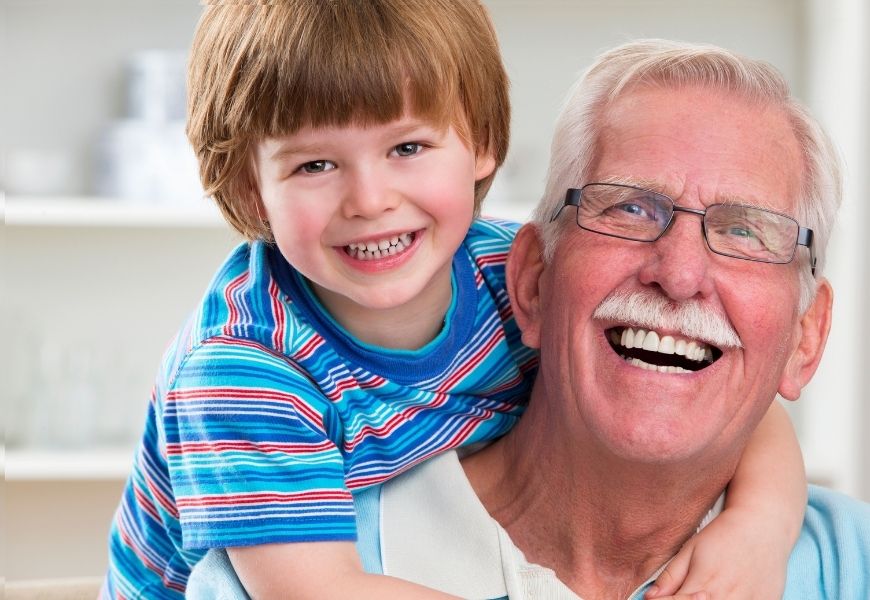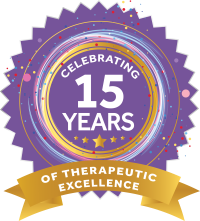
By Annmarie Iascone, E-Therapy Director of Sales/Business Development
As I lay in bed this morning, I think with dread about Zoom meetings sandwiching my day. In the middle of that sandwich, we have yet another presentation during a virtual conference, and I have a keynote to attend. Educational organizations, having to switch gears to a virtual environment, have done a great job getting important information into our hands in a time where we need it the most. It can’t be easy to get 500-1000 participants excited about watching presentations from afar – never mind all the behind-the-scenes work. For those of you who are extroverted like me, I long for the days of crowded conference halls and networking happy hours.
Inspired by National Teacher of Year, Tabatha Rosproy
Today, I was lucky enough to be able to attend the ASCD Symposium to hear this morning’s keynote speaker, Tabatha Rosproy. Tabatha is the first pre-school teacher to win the National Teacher of Year distinction for 2020. She shared with all of us both a very personal and heartfelt story about her own childhood struggles, dealing with mental health issues in the family, and how that shaped her into the teacher she is today. She went on to explain how important it is to her to incorporate SEL activities into her daily preschool program.Did I mention that Tabatha is a Lead Special Education teacher for a preschool located in a retirement community?She teaches preschool for Winfield Early Learning Center (WELC) in Winfield, Kansas. Housed in Cumbernauld Village, a local retirement community and nursing home, her inclusive classroom is an inter-generational program that provides preschoolers and residents with multiple daily interactions and serves special education and typically developing preschoolers in a full-day setting.I have included the link to her presentation. Watch the video of how the seniors interact with the littles. It is truly heartwarming how much impact these littles have had on these senior’s lives and vice versa.One gentleman talks about how he had decided to give up on living until he started interacting with the school’s students every day. In another story, a child, who hating coming to school and would kick and scream upon getting there in the morning, would change her whole demeanor once interacting with the residents. The more she interacted, the more positive experiences came from it both in the classroom and at home.Why don’t we focus more time on activities that nurture a young child’s social and emotional skills?Why aren’t we letting children interact more with our senior population?
Take things off our plates to make room for SEL
Studies have shown that social and emotional skills are just as important as learning math and English. According to Education Week author Marva Hinton, “The programs that look most successful for children are those that are tracking both social-emotional and cognitive, academic learning and using programming in the preschool that’s facilitating both areas at the same time.”Tabatha spoke about how none of us are born with SEL skills like empathy. These are learned behaviors. People are born with survivor skills, not social and emotional skills. We need to approach this while kids are in preschool. But, teachers are stressed and have a lot on their plates. So do parents. Tabatha advocates that we need to take some things off our plates to incorporate more SEL skills into the academic curriculum.Check out the “Row, Row, Row your boat” partner activity that she does in her classroom! Amazing!One important takeaway I had was that this cannot be 100% achieved overnight. Tabatha shared three things to get us started:
- We need to educate ourselves – “Leadership is an activity, not a position.” Share your learnings with your administrators – they will be thankful.
- Reflect – the more reflective you are, the more effective you are!
- Connect – This seemed most important – “Children who need the most love, ask for it in the most unloving ways.”
Foster family engagement
The other important takeaway that was loud and clear was family engagement and how important it is, now more than ever. Families have lots of questions about how to get their littles more engaged, creating routines, and connecting with schools. Tabatha involves her families by having lots of open communication with them as well as having a monthly family night. It is there where she listens to the family’s needs and shares important coaching skills like daily reading activities and prompt questions to engage in conversation.Let’s face it, stressors are magnified especially now. Both families and educators need to work together to make the next generation happy, healthy, kind, and high-functioning citizens in our community. Check out ASCD for more presentations like this one, you will not be sorry.
About the author
Annmarie Iascone, k – E-Therapy Annmarie started her career as a high school English teacher and has spent 20 years in different roles in Education. Working with companies like Scholastic, Inc and Blackbaud she has always had a passion for making sure students get the services that they need to succeed. As Director of Business Development at E-Therapy, Annmarie works with school partners to make sure their special education teams are equipped with what they need to deliver compensatory services to their students virtually whether it be through providing a remote therapist or licensing out their premiere platform STAR. Schedule a call with Annmarie.
Annmarie started her career as a high school English teacher and has spent 20 years in different roles in Education. Working with companies like Scholastic, Inc and Blackbaud she has always had a passion for making sure students get the services that they need to succeed. As Director of Business Development at E-Therapy, Annmarie works with school partners to make sure their special education teams are equipped with what they need to deliver compensatory services to their students virtually whether it be through providing a remote therapist or licensing out their premiere platform STAR. Schedule a call with Annmarie.
